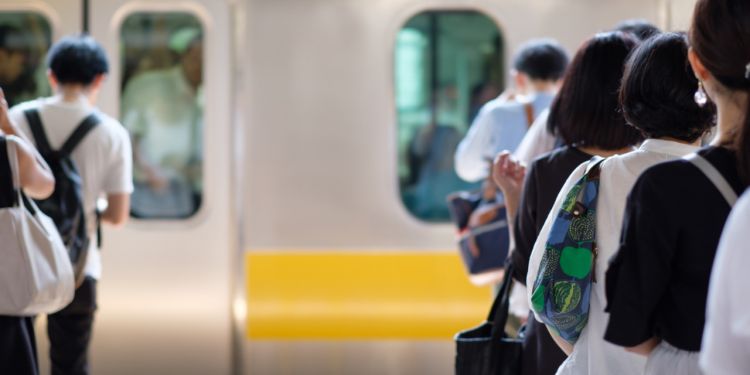
Moving to Japan, specifically Tokyo, is a great adventure. Here is a non-exhaustive list of do's and don'ts to make your stay in Tokyo even more fulfilling.
In the streets of Tokyo
Show consideration for others and stay mindful of your surroundings.
- Smoke only in authorized areas (smoking areas);
- Avoid eating or drinking while walking;
- Do not throw your garbage on the ground;
- Do not cross at the red light at the crosswalk;
- Avoid talking loudly in public or on the phone;
- Avoid taking photographs when not allowed, including taking photos of people, temples, shrines, or private buildings.
In public transport in Tokyo
- Line up and do not pass people in the train station or at the bus stop;
- Respect the travel directions;
- Avoid talking on the phone when using public transportation in Tokyo;
- Turn off the sound when playing a game to avoid disturbing passengers;
- Do not listen to music loudly;
- Be aware of seats for the elderly, pregnant women, and the disabled;
- Speak in a soft tone;
- Be careful of women-only carriages on trains.
At the restaurant or during a meal in Tokyo
- Do not tip: this is not customary in Tokyo;
- Avoid sticking your chopsticks into your rice bowl: it is a funeral ritual;
- Don't use your chopsticks as Western cutlery;
- Don't point your chopsticks at anyone;
- Do not touch the dishes with the tips of your chopsticks;
- If your chopsticks touch a food item, pick it up. Do not put it back in the dish;
- Do not cross your chopsticks: place them flat on their chopstick rest or in front of you;
- Finish your plate: it's a sign of respect and a much-appreciated anti-waste gesture;
- “Itadakimasu” and “gochisôsama (deshita)” are the equivalents of “Bon appétit” and “merci pour ce repas” (thank you for the meal).
In your relationships in Tokyo
- Don't say hello with a kiss. A nod is enough;
- Don't shake hands, either, unless, of course, you see someone reaching out to you. This can happen in professional settings. Observe and apply the rules;
- At business events in Tokyo, make sure to always have your business cards with you. Learn how to hand them out properly;
- Avoid public displays of affection with your partner;
- Be on time!
- Blow your nose discreetly;
- Don't say “Jap”: this term, massively used by the Western media during World War II, is considered racist;
- Avoid saying “iie” (no), considered aggressive. Prefer “chotto”.
When invited to someone's home in Tokyo
- Leave your shoes at the entrance (genkan). Do the same at home;
- Bring a small gift (omiyage) but remember to avoid giving gifts in sets of four.
At the onsen (hot spring) or sento (public bath) in Tokyo
- Beware of tattoos. Make sure to enquire whether they are accepted before you go to such places;
- Wash yourself before entering the onsen or sento bath;
- Do not enter the bath in a bathing suit. You must be naked. The most modest will keep the small towel given to hide their intimate part. Since the towel is usually very small, choosing what you want to hide will be convenient;
- Don't rush or jump into the bath;
- Tie your hair if it's long.
In the fitting room in Tokyo
- Remove your shoes before entering the “fitting” area. Your booth consists of two areas: the entrance and an elevated area. Take your shoes off before entering the elevated area;
- People wearing makeup: use the protectors you are given to not stain the clothes you are trying on.
Netiquette and email manners in Tokyo
In the online world, following proper rules and manners is essential to avoid issues and stay safe.
- Always respect others' privacy;
- Be cautious when sharing personal details like your address and name;
- Keep your IDs and passwords secure;
- Double-check your emails before hitting send;
- Check and send emails during business hours (9:00 a.m.–5:00 p.m.) since they are considered part of work;
- Respond to emails you receive as soon as possible within 24 hours.
Useful links:
Etiquette (netiquette) to prevent crimes and troubles on the Internet
Email business etiquette (Japanese)
As you meet the Japanese, you will discover many other things, many of them logical. Japanese people will forgive you for a few blunders and be happy to help you understand their culture better. They will be even more delighted when they see you are trying to learn and speak their language.
We do our best to provide accurate and up to date information. However, if you have noticed any inaccuracies in this article, please let us know in the comments section below.








